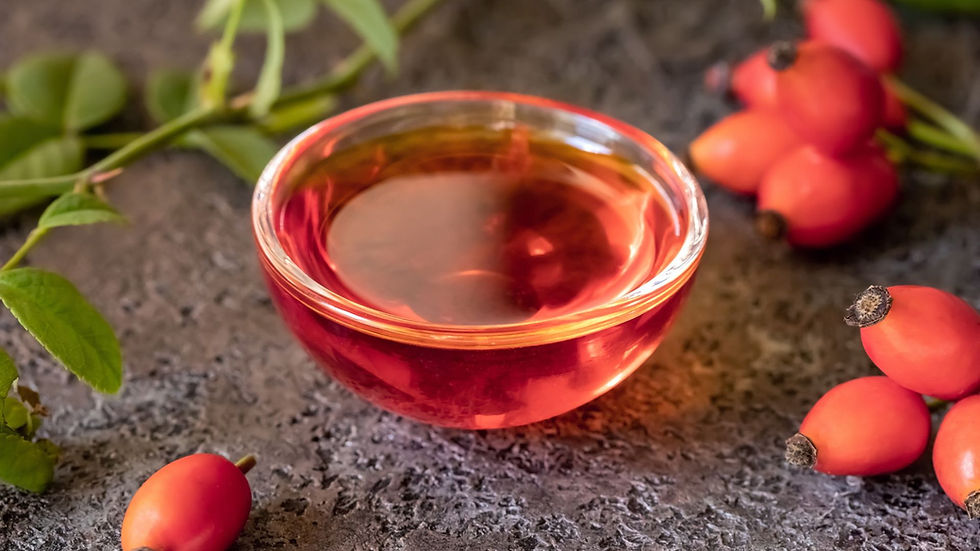
Last November, I discussed briefly the concept of 'inflammaging' and its impact on our hair, skin, and body in my article titled A Beginner’s Guide to Collagen and Glycine: Boosting Skin Health from Within. Let us explore this topic more thoroughly.
Inflammaging is a relatively new term that merges "inflammation" and "ageing," it refers to the chronic, low-grade inflammation that typically increases with age. This phenomenon has garnered significant attention in recent years, particularly for its implications in various health conditions, including cardiovascular diseases, neurodegenerative disorders, and, notably, skin health.
As we age, our immune system undergoes changes that can increase the production of pro-inflammatory cytokines—proteins that signal inflammation. While inflammation is a natural body response to injury or infection, chronic inflammation can harm various biological functions, including skin health.
How Inflammaging Affects Your Skin
1. Decreased Collagen Production: Chronic inflammation can disrupt the normal production of collagen, a vital protein that provides structure and elasticity to the skin. As collagen levels decline, skin loses its firmness and may develop wrinkles and sagging—hallmarks of ageing.
2. Skin Barrier Dysfunction: The epidermis, or outer layer of the skin, acts as a barrier to protect against environmental stressors and pathogens. Inflammaging can compromise this barrier, leading to increased permeability, which allows irritants and allergens to penetrate more easily. This can cause skin conditions like eczema and rosacea.
3. Increased Oxidative Stress: Inflammaging is associated with heightened oxidative stress, where an imbalance between free radicals and antioxidants occurs. This oxidative stress can further damage skin cells, accelerate ageing processes, and contribute to pigmentation changes, such as age spots and uneven skin tone.
4. Impaired Wound Healing: Ageing skin often has a reduced ability to heal from wounds or injuries, partly due to inflammation's role in the healing process. Inflammatory cytokines can interfere with the repair mechanisms of the skin, leading to delayed healing times and increased risk of infection.
5. Changes in Skin Texture: The cumulative effects of chronic inflammation can lead to changes in skin texture. Dryness, roughness, and a loss of radiance can occur, making the skin appear dull and lifeless.

Preventive Measures and Management - While ageing is inevitable, there are several strategies to manage the effects of inflammaging on the skin:
- Anti-inflammatory Diet: Incorporating foods rich in antioxidants, omega-3 fatty acids, and anti-inflammatory compounds (such as turmeric and green tea) can help combat inflammation from within.
- Skincare Products: Look for topical products containing ingredients like bakuchiol oil, peptides, and hyaluronic acid, which can promote collagen production and enhance skin barrier function. Antioxidants such as vitamins C and E can also be beneficial.
- Lifestyle Choices: Regular exercise, adequate hydration, sufficient sleep, and stress management can significantly influence overall inflammation levels. Limiting alcohol consumption and avoiding smoking also play crucial roles in maintaining skin health. Look into intermittent fasting also, the benefits are numerous.
- Sun Protection: UV exposure can intensify inflammation and accelerate skin ageing. Daily application of broad-spectrum sunscreen can help protect the skin from these harmful effects.
Inflammaging represents a complex interplay between the ageing process and chronic inflammation, profoundly impacting skin health. Understanding this concept is essential for developing effective strategies to lessen its effects and maintain youthful, healthy skin as we age. By adopting a holistic approach—incorporating dietary, lifestyle, and skincare changes—we can better navigate the challenges of inflammaging and promote skin vitality throughout the ageing process.
The Role of Skincare in Combatting Inflammaging - The good news is that our skincare routines can be our best defence against inflammaging! Here are some key ingredients and practices to consider adding to your daily regimen:
1. Antioxidants
Powerhouses like Vitamin C, E, and ferulic acid neutralize free radicals and reduce oxidative stress, helping to calm inflammation and promote a youthful glow. Look for serums or moisturizers loaded with these potent ingredients to enhance your skincare routine.
2. Niacinamide
This versatile ingredient is known for its anti-inflammatory properties. Niacinamide strengthens the skin barrier, improves hydration, and diminishes the appearance of fine lines and enlarged pores. Including niacinamide in your skincare routine can significantly improve the texture of your skin.
3. Peptides
Peptides are the building blocks of proteins in the skin. By encouraging collagen production, they help restore firmness and elasticity while also soothing inflammation. Opt for peptide-infused creams or serums for added benefits to your skin’s texture and resilience.
4. Hyaluronic Acid
Hydration is essential in combating ageing skin. Hyaluronic acid draws moisture into the skin, plumping it up and making fine lines less noticeable. This powerful humectant is crucial in any anti-ageing arsenal and can greatly enhance your skin's hydration levels.
5. Anti-Inflammatory Botanicals
Incorporate ingredients like orange blossom, rose damascene, watermelon, rosehips, and cucumber into your routine. These botanicals are excellent choices for soothing inflamed skin, calming irritation, and providing essential nutrients that promote healing and rejuvenation.
A Holistic Approach - Skincare isn’t just about the products we apply; it encompasses our overall lifestyle. Consider adopting a balanced diet rich in anti-inflammatory foods such as berries, nuts, and fatty fish. Additionally, regular exercise, adequate sleep, and mindfulness practices can significantly help lower inflammation levels.
Inflammaging may pose a challenge, but understanding its implications empowers us to take proactive steps in our skincare routine. By choosing products formulated specifically to combat inflammation and integrating holistic lifestyle changes, we can embrace "ageing gracefully." With strategic skincare choices, we can help maintain our skin's health and vitality as we age.

What is Inflammaging and How Does It Affect Your Skin?


Comments